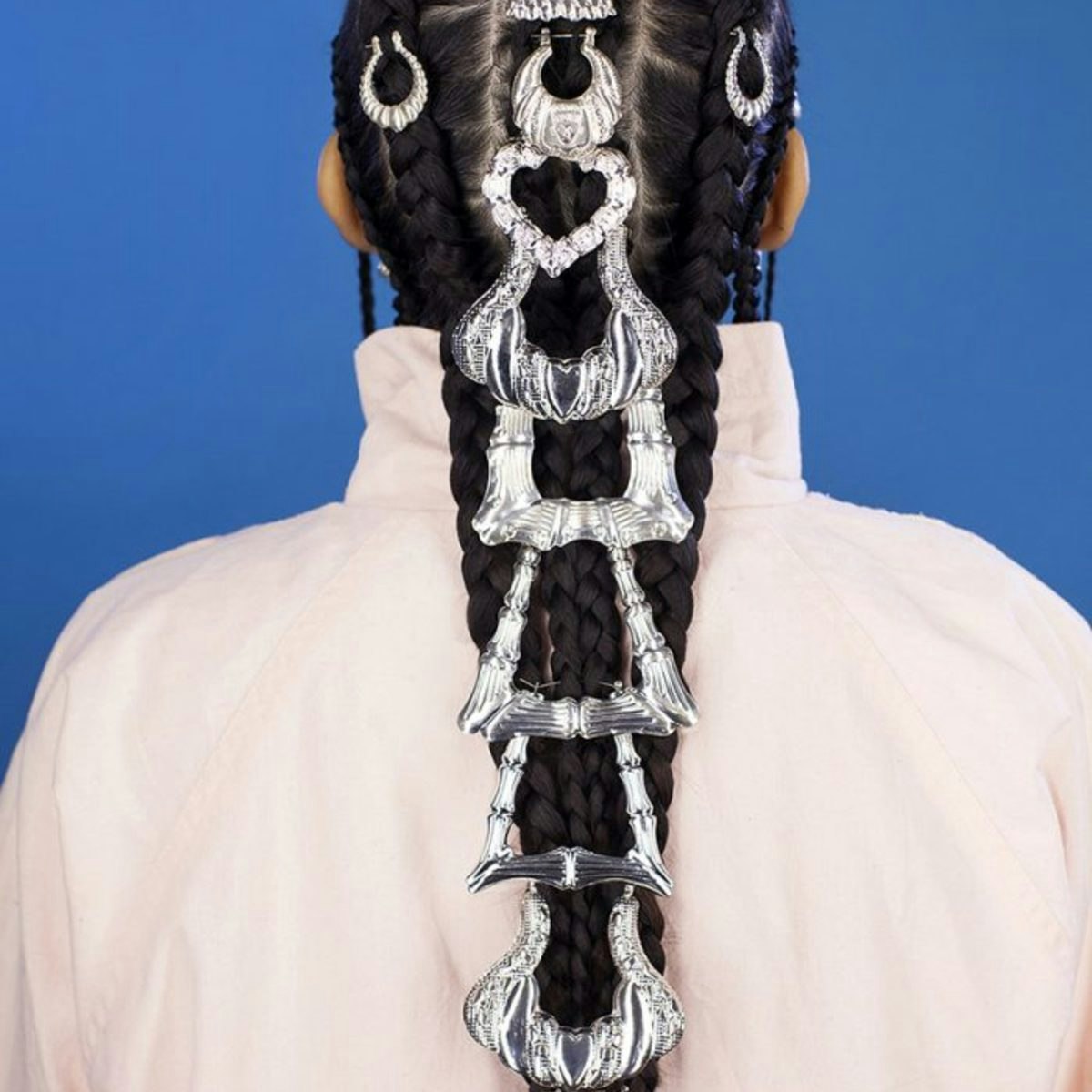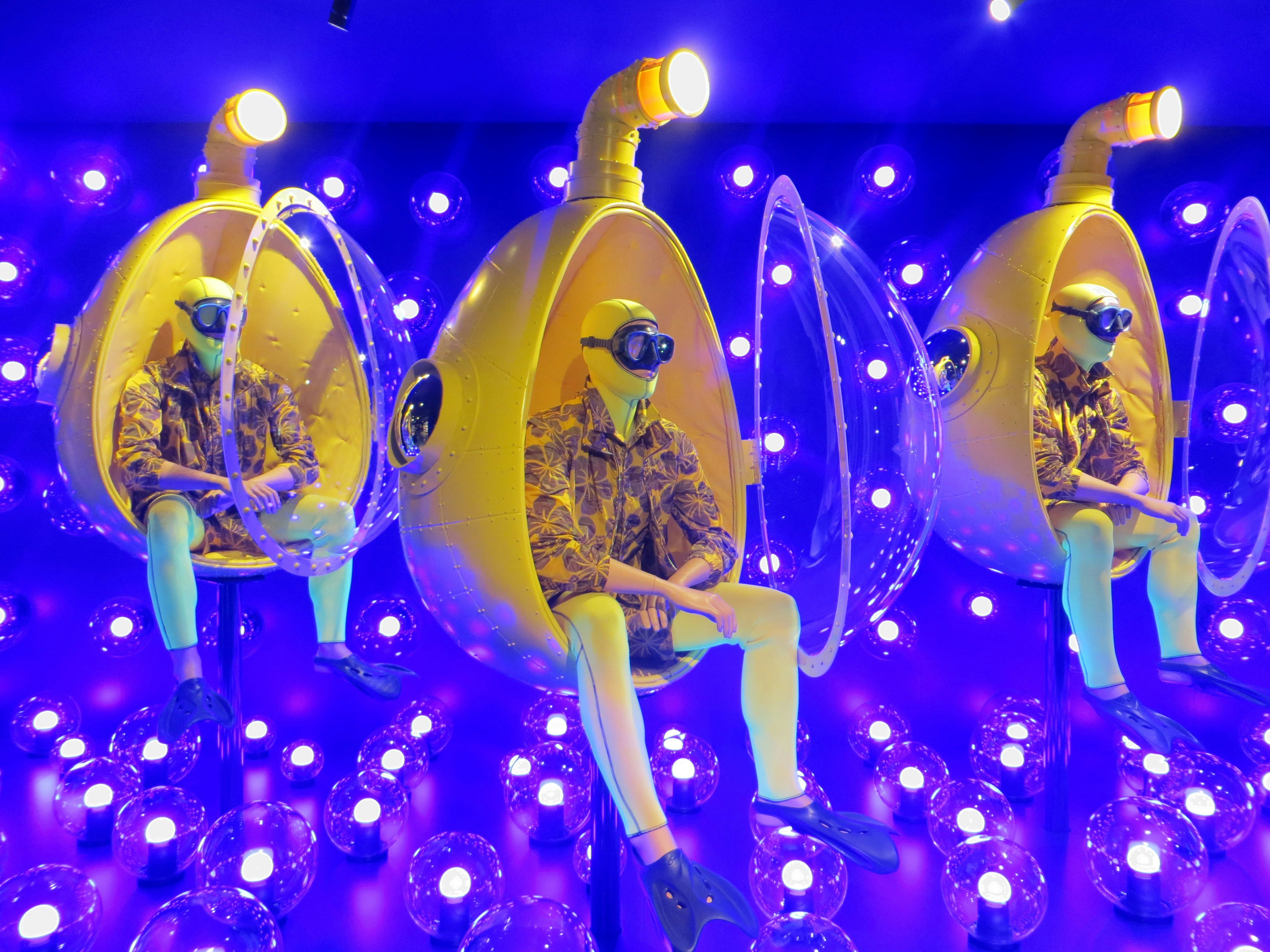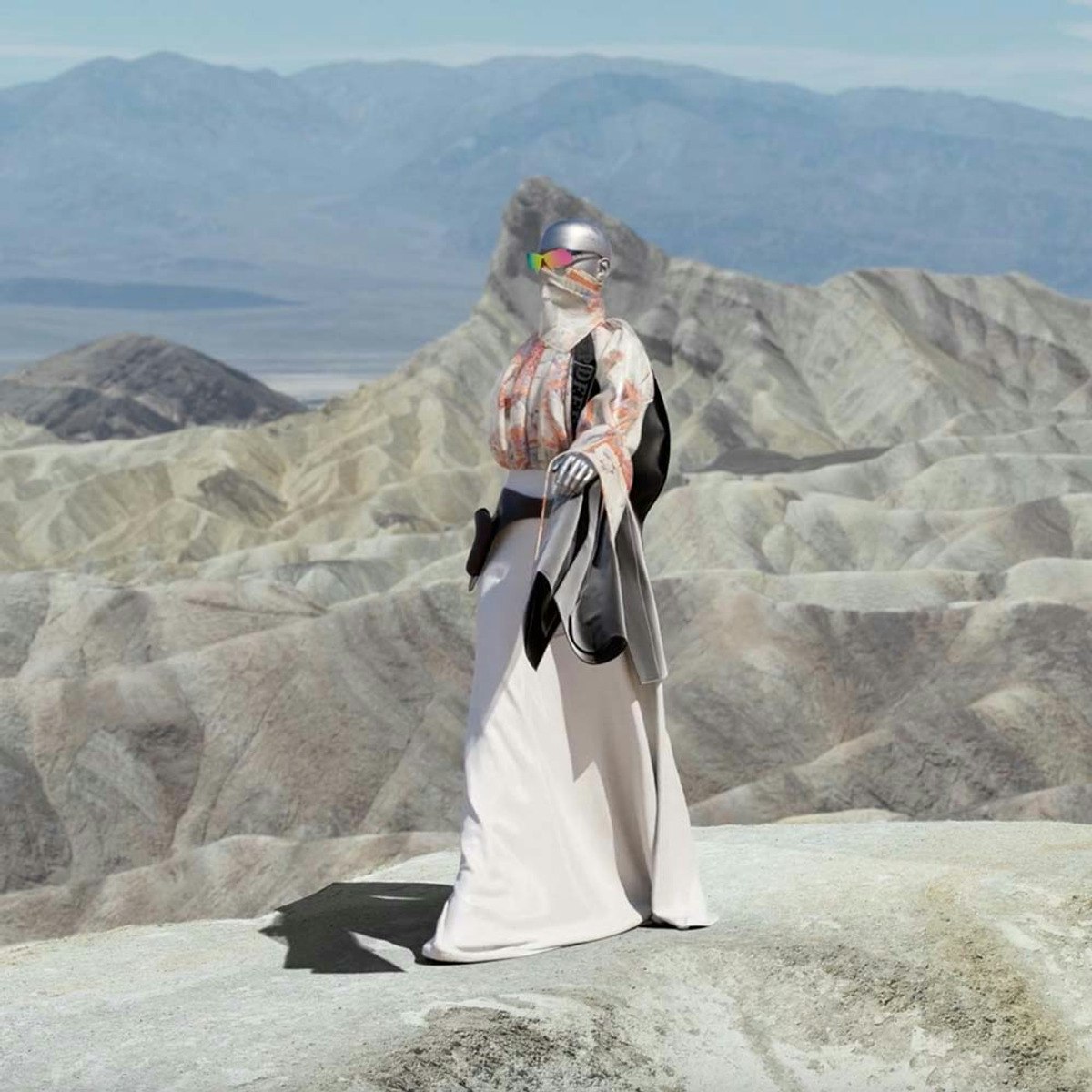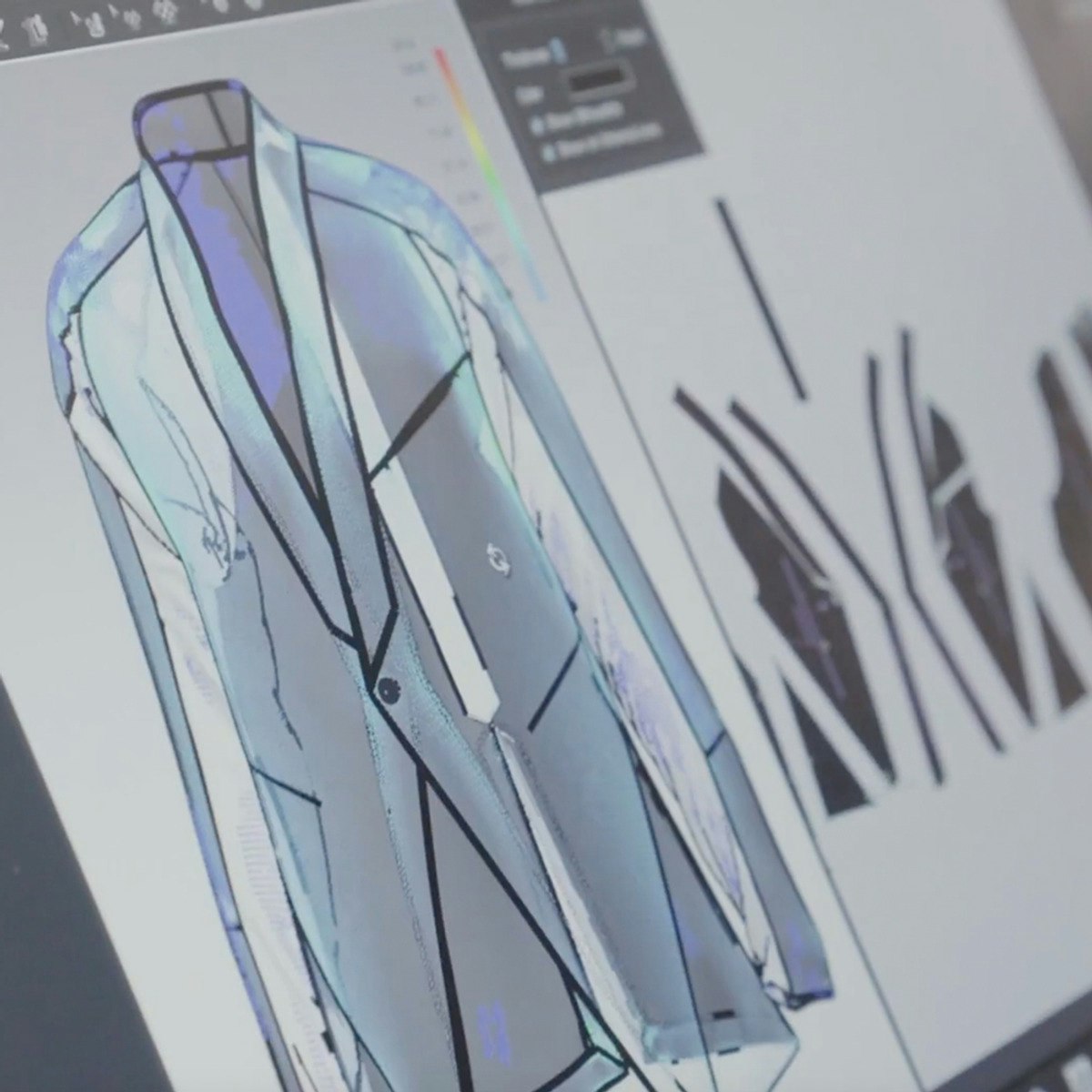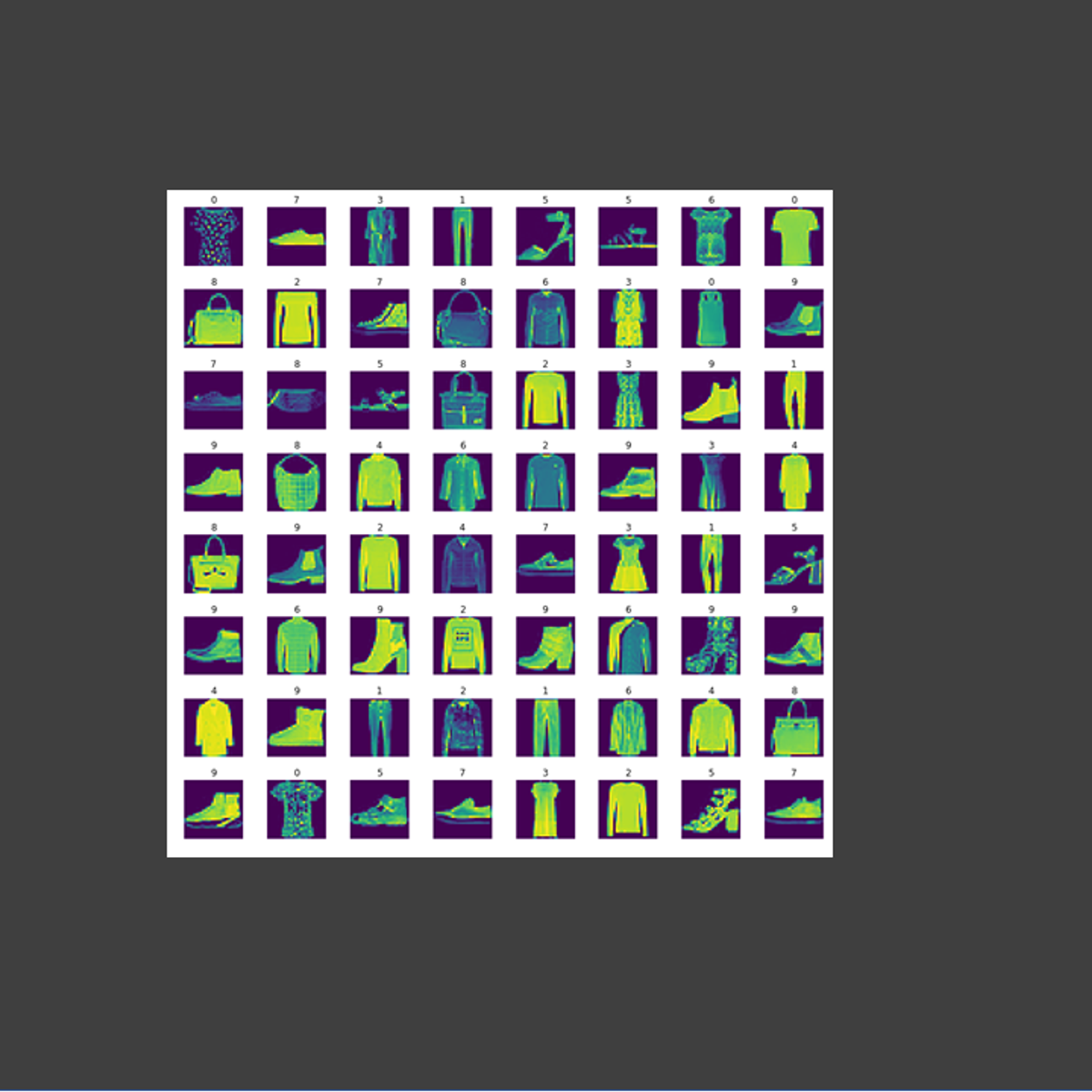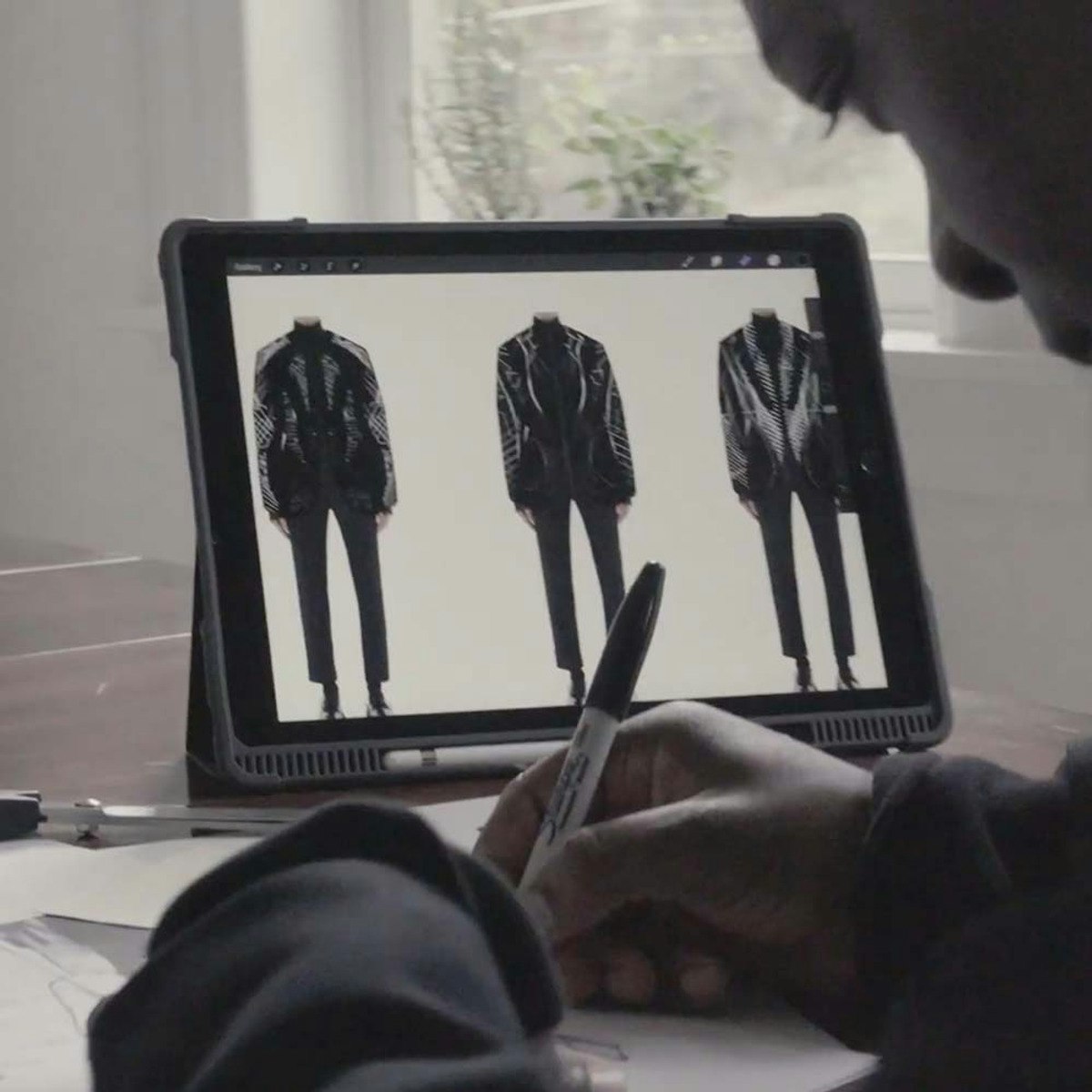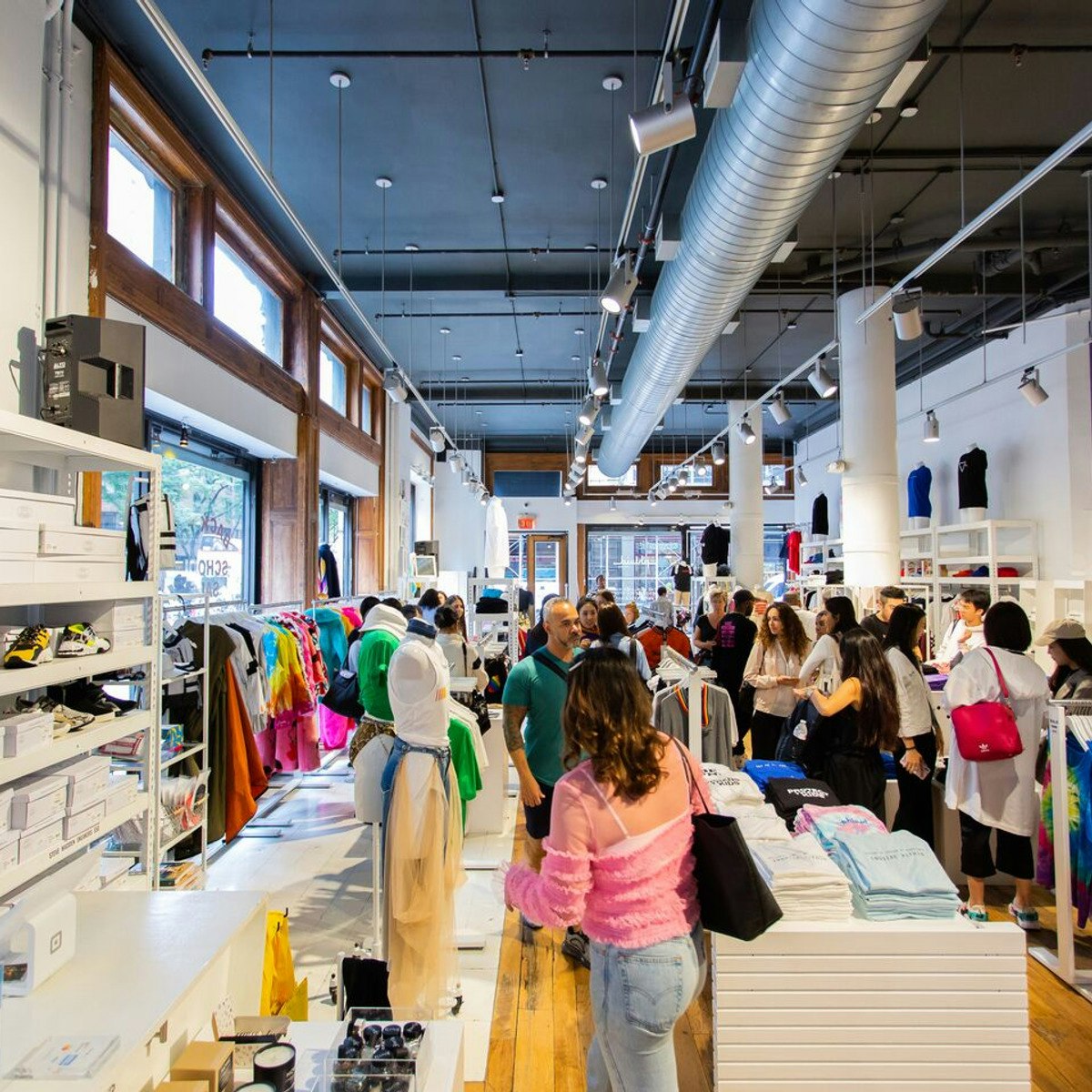Fashion Consultant
Career Guide: Fashion Consultant
A Fashion Consultant is a professional who guides individuals or businesses on clothing and accessories to enhance their image, style, or brand identity. They blend an understanding of fashion trends, color theory, body types, and personal branding to help clients make informed choices about their appearance. This role often involves analyzing existing wardrobes, recommending new pieces, coordinating outfits for various occasions, and staying current with the ever-evolving fashion landscape.
Working as a Fashion Consultant can be exciting, offering opportunities to merge creativity with strategic thinking. You might find yourself immersed in the latest trends, collaborating with diverse clients from individuals seeking a personal style overhaul to major brands refining their image. The role allows for direct impact, helping people feel more confident or businesses communicate their identity more effectively.
Introduction to Fashion Consulting
Defining the Role and Its Scope
At its core, fashion consulting bridges the gap between style trends, personal expression, and sometimes, professional objectives. A Fashion Consultant, sometimes called a Personal Stylist or Image Consultant, provides expert advice to clients on selecting apparel, accessories, and even overall presentation to achieve specific goals. This might involve curating a functional and stylish wardrobe for an individual or advising a company on aligning its employees' appearance with the brand's image.
The scope of work can vary significantly. For personal clients, a consultant might perform a wardrobe audit, assess style preferences and lifestyle needs, and then shop for or recommend pieces that build a cohesive and flattering collection. They essentially help clients define and refine their personal style, ensuring clothes fit well and communicate the desired message.
For corporate or commercial clients, the focus shifts towards brand representation. Consultants might help businesses develop dress codes, select uniforms, or style representatives for events or marketing campaigns. The goal is to ensure the visual identity presented through clothing aligns with the company's values and market positioning, making a memorable impact.
record:14lryq
Key Industries and Sectors
Fashion consultants operate across a diverse range of industries. Personal styling is a major sector, where consultants work one-on-one with individuals seeking to improve their personal image, prepare for special events, or simply build a more effective wardrobe for daily life.
The corporate world also represents a significant area. Businesses across various sectors, including hospitality, retail, finance, and tech, hire consultants to enhance their brand image through employee attire or uniforms. This B2B consulting ensures a consistent and professional visual identity that resonates with target audiences and industry standards.
Additionally, consultants may find opportunities in media and entertainment, styling individuals for photoshoots, public appearances, or film and television. They might work freelance or be employed by magazines, advertising agencies, or production companies. The retail sector itself sometimes employs individuals in roles described as fashion consultants, focusing on sales through personalized style advice within a store setting.
Bridging Creativity and Commercial Goals
A key aspect of fashion consulting is the ability to balance artistic sensibility with practical, often commercial, objectives. Consultants must possess a strong aesthetic sense and creative flair to develop appealing looks and styles. However, this creativity must be grounded in an understanding of the client's goals, whether personal confidence or corporate branding.
For individual clients, this means translating personal aspirations and lifestyle needs into tangible wardrobe choices. It requires empathy and strong communication to understand the client's vision and guide them effectively. The consultant acts not just as a stylist but as a strategic advisor, ensuring the chosen clothing serves the client's broader aims.
In a business context, the consultant acts as a fashion strategist. They analyze the company's brand identity, target market, and competitive landscape to develop fashion recommendations that support business objectives. This requires analytical skills alongside creativity, ensuring style choices are not only aesthetically pleasing but also strategically sound and commercially viable.
Core Responsibilities of a Fashion Consultant
Client Wardrobe Analysis and Personal Styling
A fundamental task for many fashion consultants is analyzing a client's existing wardrobe. This involves evaluating current clothing and accessories to understand the client's style, identify gaps, suggest removals, and determine what works well. The goal is to create a functional, versatile, and cohesive collection that aligns with the client's body type, lifestyle, preferences, and budget.
Based on this analysis, the consultant provides personalized styling advice. This can range from suggesting specific outfits for everyday wear or special occasions to recommending key pieces to purchase. They help clients understand color coordination, fit, and how different styles can enhance their features and confidence.
This process is highly collaborative, requiring consultants to listen carefully to client needs and goals. They act as advisors, helping clients develop their own sense of style while ensuring the selections are practical and flattering. Effective personal styling empowers clients to feel better about their appearance.
These courses offer insights into color theory and makeup application, foundational elements often used in personal styling consultations.
Trend Forecasting and Market Research
Staying ahead of fashion trends is crucial for a consultant. This involves continuous market research, monitoring runway shows, following designers, reading industry publications (like Women's Wear Daily), analyzing social media, and understanding shifts in consumer preferences. This knowledge allows consultants to provide relevant and forward-thinking advice.
Consultants use trend forecasting not just to suggest current styles but also to anticipate future directions in fashion. This helps clients make timely wardrobe updates or allows businesses to align their branding with emerging aesthetics. It requires analytical skills to sift through vast amounts of information and identify meaningful patterns.
This research extends beyond aesthetics to include understanding materials, sustainability practices, and technological innovations in fashion. Consultants need a broad awareness of the industry landscape to offer comprehensive guidance, whether recommending eco-friendly options or leveraging new digital styling tools.
Consider these books for a deeper dive into fashion history and theory, which can inform trend analysis.
Collaboration with Designers, Retailers, and Brands
Fashion consultants often work closely with other industry players. They may collaborate with fashion designers to understand upcoming collections or source specific pieces for clients. Building relationships with designers can provide access to unique items and insights into design philosophy.
Interactions with retailers are also common, whether shopping with clients, pulling items for photoshoots, or advising retail businesses themselves. Consultants need to understand retail environments, inventory, and pricing structures. Working within retail, perhaps as a sales associate or visual merchandiser, can provide valuable hands-on experience.
For corporate or commercial projects, consultants collaborate directly with brands to develop fashion strategies that align with marketing and identity goals. This might involve selecting uniforms, styling brand representatives, or advising on visual merchandising. Strong communication and project management skills are essential for these collaborations.
Essential Skills and Qualifications
Balancing Aesthetic Sensibility and Technical Knowledge
Success as a fashion consultant hinges on a unique blend of skills. Strong aesthetic sensibility – an eye for color, proportion, style, and detail – is fundamental. This allows consultants to create visually appealing looks and understand how clothing interacts with individual body types and personalities.
However, creativity alone isn't enough. Technical knowledge is equally important. This includes understanding fabrics, garment construction, fit, and maintenance. Familiarity with fashion history, designers, and brands provides crucial context. This technical grounding ensures recommendations are practical and well-informed.
The ideal consultant merges these two aspects seamlessly. They use their creative eye to envision possibilities and their technical understanding to execute them effectively, ensuring style choices are both beautiful and functional for the client's needs.
These resources can help develop both the creative and analytical sides necessary for fashion consulting.
Communication, Sales, and Client Management Skills
Fashion consulting is inherently client-facing, making strong communication and interpersonal skills paramount. Consultants must be excellent listeners to understand client needs, aspirations, and insecurities. They need to articulate their recommendations clearly and persuasively, building trust and rapport.
Sales skills are often intertwined with consulting, especially in retail settings or when recommending specific products. Consultants guide clients toward purchases that meet their goals, requiring tact and an understanding of client motivations. Even outside direct sales, the ability to "sell" ideas and build confidence in style choices is key.
Effective client management involves organization, time management, and professionalism. Consultants often juggle multiple clients and projects, requiring meticulous planning and follow-through. Handling feedback, managing expectations, and maintaining confidentiality are all crucial aspects of building lasting client relationships.
Understanding the psychology behind clothing choices can be beneficial. These books delve into the relationship between fashion and psychology.
Understanding Business Acumen and Industry Tools
While creativity is vital, fashion consulting is also a business. Consultants, especially freelancers, need basic business acumen. This includes understanding pricing strategies, marketing themselves, managing finances, and potentially negotiating contracts. Even consultants within larger firms benefit from understanding the commercial aspects of the industry.
Familiarity with industry tools is increasingly important. This might involve software for client management, virtual styling platforms, trend forecasting databases, or presentation tools for creating proposals and mood boards. Proficiency with tools like visual merchandising software or even standard office software (MS Office is often listed as a required skill) can enhance efficiency and professionalism.
Staying updated on industry standards, ethical considerations (like sustainable fashion practices), and market dynamics is also part of the required business understanding. This broader awareness allows consultants to provide more strategic and relevant advice.
This course offers insights into managing fashion and luxury companies, touching upon key business strategies relevant to consultants.
Credentials: Certifications vs. Portfolio
While a formal degree isn't always mandatory, educational background and credentials can matter. Some employers prefer candidates with degrees in fashion design, merchandising, or related fields. Certifications, such as those offered by organizations like the Association of Image Consultants International (AICI), can demonstrate specialized knowledge and commitment, potentially boosting credibility.
However, in the fashion world, a strong portfolio often speaks louder than formal credentials. A well-curated portfolio showcasing successful client projects, styling work (even if speculative or personal projects initially), and a clear aesthetic vision is essential. It provides tangible proof of skill and style.
Ultimately, the path often involves a combination. Foundational knowledge gained through education or certification, combined with practical experience documented in a compelling portfolio, creates the strongest profile. Networking and continuous upskilling by staying informed on trends are also vital components of establishing credibility.
Formal Education Pathways
Relevant Undergraduate Degrees
While not always a strict requirement, pursuing a relevant undergraduate degree can provide a strong foundation for a career in fashion consulting. Degrees in Fashion Merchandising are particularly pertinent, covering topics like retail management, buying, trend forecasting, and marketing within the fashion context.
A degree in Fashion Design offers deep knowledge of garment construction, textiles, and the creative process, which is invaluable for understanding clothing quality and fit. Other related fields include Textile Science, which focuses on the properties and production of fabrics, or even Art History, which can cultivate a sophisticated understanding of aesthetics and historical context.
Business or Marketing degrees, perhaps with a fashion concentration or minor, can also be beneficial, equipping aspiring consultants with essential commercial skills. These programs often cover brand management, consumer behavior, and sales strategies applicable to the fashion industry.
Exploring different facets of the fashion world through education can broaden your perspective. Consider browsing Design courses or Business programs on OpenCourser to see related educational options.
Specialized Master's Programs
For those seeking deeper expertise or aiming for leadership roles, specialized master's programs can offer advanced knowledge. Degrees focusing on Fashion Business, Luxury Brand Management, or Fashion Marketing delve into the strategic and commercial aspects of the industry at a higher level.
Some programs might offer concentrations specifically relevant to consulting, such as consumer behavior analysis, international fashion markets, or sustainable fashion management. These advanced degrees can enhance analytical skills and provide opportunities for high-level networking.
Research-oriented master's programs may also exist, particularly focusing on areas like fashion history, theory, or the sociology of fashion. While less directly vocational, these can provide a unique depth of understanding for consultants interested in academic or highly specialized niches.
Research Opportunities in Sustainable Fashion Systems
Sustainability is a rapidly growing area of focus within the fashion industry, presenting unique opportunities for research and specialization, even at the educational level. Many universities are developing research initiatives focused on sustainable fashion systems, textile recycling, ethical sourcing, and circular economy models in fashion.
Students pursuing undergraduate or graduate degrees may find opportunities to engage in research projects related to these topics. This could involve studying the environmental impact of different materials, analyzing consumer attitudes towards sustainable brands, or exploring innovative solutions for reducing waste in the supply chain.
Engaging in such research not only contributes valuable knowledge to the field but also equips future consultants with specialized expertise highly sought after by clients and brands increasingly concerned with ethical and environmental responsibility. This specialization can be a significant differentiator in the job market.
These courses provide insights into responsible innovation and circular business models within the fashion industry, key areas in sustainable fashion.
This book offers a foundational text on sustainable practices in fashion and textiles.
Online Learning and Skill Development
Leveraging Online Courses for Foundational Knowledge
Online courses offer a flexible and accessible way to build foundational knowledge or specialize in specific areas of fashion consulting. Platforms like OpenCourser aggregate thousands of courses, allowing learners to find resources on everything from fashion history and color theory to digital marketing and client management.
For those new to the field or considering a career pivot, online courses can provide an excellent introduction without the commitment of a full degree program. You can explore different facets of the industry, learn core concepts, and gauge your interest. Look for courses covering fashion fundamentals, styling techniques, or trend analysis.
Professionals already in the field can use online learning to upskill or specialize. Courses on emerging topics like sustainable fashion, digital styling tools, or fashion technology can keep your knowledge current and enhance your service offerings. OpenCourser's search capabilities make it easy to find relevant courses across various providers.
Digital Tools for Virtual Styling and Consultations
The rise of digital technology has opened new avenues for fashion consulting, particularly virtual styling. Online courses can teach you how to use digital tools for creating mood boards, managing client wardrobes remotely, and conducting virtual consultations via video calls.
Learning about software for virtual try-ons or body measurement analysis can enhance your service offerings, especially for online clients. Familiarity with social media platforms is also crucial, not just for marketing but potentially for client communication and trend research. Some courses focus specifically on leveraging platforms like Instagram for business.
Mastering these digital tools allows consultants to reach a broader client base, transcending geographical limitations. It adds a layer of convenience for clients and efficiency for the consultant. Look for courses focused on digital fashion or social media marketing.
These courses cover aspects of the digital fashion landscape and social media optimization, relevant for modern consultants.
Self-Directed Projects and Portfolio Building
Online learning often involves practical application. Many courses include projects or assignments that can become valuable pieces for your portfolio. Even without formal assignments, you can initiate self-directed projects inspired by your coursework.
Consider creating speculative styling projects: develop mood boards for hypothetical clients, curate lookbooks based on current trends, or write blog posts analyzing fashion shows. Document this work professionally with high-quality images and clear descriptions to showcase your skills and aesthetic.
Use online platforms to build visibility. Create a professional website or use social media to display your portfolio pieces. Engaging with online fashion communities can also provide feedback and networking opportunities. Remember, a strong portfolio demonstrating practical skills is often the most crucial asset for landing clients or jobs.
OpenCourser's Learner's Guide offers tips on structuring self-learning and making the most of online educational resources, which can be helpful when undertaking self-directed projects.
Micro-Credentials in Niche Areas
Beyond comprehensive courses, consider pursuing micro-credentials or specialized certificates in niche areas. These shorter, focused programs can add specific expertise to your profile. Examples include certifications in sustainable fashion practices, inclusive sizing consultancy, corporate image consulting, or specific software tools.
These credentials can signal specialized knowledge to potential clients or employers, helping you stand out in a competitive field. They demonstrate a commitment to continuous learning and expertise in areas of growing importance within the industry.
Platforms offering online courses often feature specialized tracks or certificate programs. Explore areas that align with your interests or perceived market needs. Focusing on a niche, like sustainable fashion or menswear, can help define your brand as a consultant.
This book explores vintage menswear, a potential niche area for specialization.
Career Progression and Industry Hierarchy
Entry-Level Roles and Gaining Experience
Breaking into fashion consulting often starts with gaining practical experience in related roles. Working in retail, especially in clothing stores or boutiques, provides invaluable exposure to customer interaction, styling, visual merchandising, and product knowledge. Roles like Sales Associate or Stylist Assistant are common starting points.
Internships offer another crucial pathway. Seeking internships with established fashion consultants, stylists, fashion brands, magazines, or public relations firms can provide direct insight into the industry's workings. These experiences help build skills, create portfolio pieces, and establish vital network connections.
Other related entry-level positions might include roles in fashion buying departments as assistants, or in trend analysis support roles. Even jobs that seem peripheral, like assisting a fashion photographer, can offer exposure to styling and industry practices.
This course provides insights into the role of a fashion buyer, another potential related field or entry point.
Mid-Career Transitions and Specialization
As consultants gain experience and build a reputation, opportunities for specialization and advancement emerge. Mid-career professionals might focus on specific client types, such as executives, entrepreneurs, or public figures. Others may specialize in niches like sustainable fashion, menswear, bridal styling, or corporate image consulting.
Transitioning to consulting for luxury brands is a common aspiration. This often requires a strong portfolio demonstrating high-end aesthetic sensibility and experience working with discerning clientele. Building relationships within the luxury sector is key for such transitions.
Some consultants leverage their expertise to move into related fields like fashion journalism, editorial styling for magazines, costume design for film or theater, or roles in brand management or fashion marketing.
Entrepreneurial Paths vs. Corporate Leadership
Many fashion consultants pursue entrepreneurial paths, establishing their own freelance practices or boutique consulting firms. This offers autonomy, flexibility, and the potential for high earnings, but also requires strong business development skills, client acquisition strategies, and self-discipline. Freelancing can offer flexibility but requires consistent effort to maintain income stability.
Alternatively, experienced consultants may seek leadership roles within larger organizations. This could involve managing a team of stylists at a retail company, leading the image consulting division of a PR firm, or holding senior positions in brand strategy or visual merchandising for major fashion houses.
The choice between entrepreneurship and corporate leadership depends on individual career goals, risk tolerance, and desired work environment. Both paths offer opportunities for significant impact and professional growth within the fashion industry.
Fashion Consultant in the Digital Age
Impact of AI on Trend Prediction and Personalization
Artificial Intelligence (AI) is increasingly influencing the fashion industry, impacting how consultants work. AI algorithms analyze vast datasets from social media, online sales, and fashion publications to predict emerging trends with greater speed and accuracy than traditional methods. Consultants can leverage AI-powered tools like Heuritech to gain data-backed insights for their recommendations.
AI also enhances personalization. Algorithms analyze individual customer data (purchase history, browsing behavior) to offer tailored style recommendations and product suggestions. Some platforms use AI for virtual fitting rooms, improving the online shopping experience and reducing returns – a capability consultants can utilize or advise clients on.
While AI offers powerful analytical capabilities, it doesn't replace the consultant's human touch – understanding client psychology, building rapport, and applying creative judgment. The future likely involves consultants augmenting their expertise with AI tools to deliver more precise and personalized services.
These courses explore the intersection of digital technology and fashion, including AI's role.
This book discusses digital advancements in the fashion and textile industries.
Social Media's Role in Democratizing Fashion Expertise
Social media platforms have profoundly changed the fashion landscape, democratizing expertise and influence. Fashion bloggers, influencers, and even everyday users share style tips, outfit ideas, and trend analyses, making fashion commentary more accessible than ever before.
For fashion consultants, social media is a double-edged sword. It provides powerful platforms for marketing services, building a personal brand, showcasing portfolios, and engaging with potential clients globally. Platforms like Instagram and Pinterest are essential tools for visual storytelling and trend monitoring.
However, it also means increased competition, as many individuals position themselves as style experts online. Professional consultants must differentiate themselves through deep expertise, personalized service, professionalism, and perhaps formal credentials or a highly curated portfolio that demonstrates a superior level of skill and understanding.
Sustainability Consulting as an Emerging Specialization
Growing consumer awareness and regulatory pressure regarding the environmental and social impact of fashion have created a demand for expertise in sustainability. This has led to the emergence of sustainability consulting as a specialized niche within fashion consulting.
Sustainability consultants advise brands on implementing eco-friendly practices, such as sourcing sustainable materials (like organic cotton or recycled fabrics), ensuring ethical labor conditions in supply chains, reducing waste through circular economy models (reuse, repair, recycle), and achieving supply chain transparency. According to a report by Lucintel, the global sustainable fashion market is projected to grow significantly, reaching $24.3 billion by 2030, indicating strong demand.
Consultants in this area need specialized knowledge of environmental science, ethical sourcing standards, relevant certifications (like Fair Trade), and circular business models. This specialization requires continuous learning to stay abreast of new materials, technologies, and regulations shaping the future of responsible fashion. The trend towards circular fashion, promoting reuse and recycling, is a key area focus, as noted by organizations like the Ellen MacArthur Foundation.
Challenges and Ethical Considerations
Fast Fashion vs. Ethical Sourcing Conflicts
The fashion industry grapples with inherent tensions between the fast fashion model – characterized by rapid production, low costs, and quick trend cycles – and the principles of ethical sourcing. Fast fashion often relies on low wages and poor working conditions, particularly in developing countries where much garment production is outsourced. This raises significant ethical concerns about labor exploitation.
Ethical sourcing, conversely, emphasizes fair wages, safe working environments, respect for workers' rights, and transparency throughout the supply chain. Consultants may face dilemmas when advising clients who prioritize affordability or trendiness over ethical considerations, or when working with brands whose supply chains lack transparency.
Navigating these conflicts requires consultants to be knowledgeable about ethical sourcing practices and certifications. They may need to educate clients on the implications of their choices and advocate for more responsible consumption or production methods. Resources like the Fashion Revolution movement provide insights into supply chain transparency.
These books explore ethical considerations and the broader context of fashion in society.
Body Positivity and Inclusive Representation
The fashion industry has historically promoted narrow beauty standards, often marginalizing diverse body types, skin colors, ages, and abilities. This lack of representation contributes to body dissatisfaction and raises ethical questions about the industry's impact on self-esteem and societal norms.
Fashion consultants have a role to play in promoting body positivity and inclusivity. This involves understanding how to style diverse body shapes and sizes effectively, recommending brands that offer inclusive sizing, and being sensitive to clients' body image concerns. It also means challenging stereotypical beauty ideals in their work.
The push for greater diversity extends to representation in marketing and media. Consultants working on commercial projects may need to advise brands on creating more inclusive campaigns that reflect the true diversity of their customer base, moving away from practices that perpetuate harmful stereotypes or body shaming.
This book offers a historical perspective on how clothing shapes our perception of the body.
Global Supply Chain Transparency Demands
Consumers, activists, and regulators increasingly demand greater transparency in fashion supply chains. This involves knowing where and how garments are made, including information about raw material origins, manufacturing processes, factory conditions, and labor practices. Lack of transparency can hide unethical or unsustainable practices.
Fashion consultants, particularly those advising brands, need to understand the complexities of global supply chains and the importance of traceability. They might advise companies on implementing systems (like blockchain) to track products or on communicating their sourcing practices honestly to consumers. According to the Australian Fashion Council, transparency builds trust at every level.
This demand for transparency links directly to ethical sourcing and sustainability. Consultants knowledgeable about transparent supply chains can help brands build credibility and meet growing consumer expectations for accountability and responsible business practices.
Transferable Skills and Alternative Careers
Crossover Opportunities in Related Creative Fields
The skills developed as a fashion consultant are highly transferable to other creative fields. The understanding of aesthetics, color, form, and historical context can be applied to Costume Design for theatre, film, or television. This requires adapting styling skills to character development and narrative needs.
Fashion Journalism and Editorial Consulting are other potential paths. Consultants possess the industry knowledge and trend awareness necessary for writing articles, styling editorial photoshoots, or advising publications on fashion content. Strong writing and communication skills are essential for this transition.
Visual Merchandising, the art of creating appealing store displays and layouts, draws heavily on styling principles and trend awareness. Consultants with experience in retail or brand collaboration may find opportunities in designing visual experiences for stores or events.
This course provides insights into the retail transformation, relevant for visual merchandising and retail curation roles.
Leveraging Expertise in Marketing and Branding
Fashion consultants develop a keen understanding of how clothing communicates identity and influences perception – skills directly applicable to marketing and branding. They can transition into roles focused on brand strategy, helping companies shape their image and messaging, particularly those in fashion, beauty, or lifestyle sectors.
Expertise in trend forecasting and consumer behavior can be valuable in market research or product development roles within fashion companies. Consultants understand what motivates consumers and can provide insights into creating products and marketing campaigns that resonate.
Public Relations (PR) within the fashion industry is another relevant area. Consultants often build strong networks and understand how to generate positive visibility, skills crucial for managing a brand's public image and media relations.
Retail Curation and Experiential Marketing
The ability to curate collections and understand customer experience can lead to roles in retail curation. This involves selecting merchandise for boutiques, department stores, or online platforms, creating a cohesive and appealing product assortment that aligns with a specific brand identity or target market.
Experiential marketing, which focuses on creating engaging and memorable brand experiences for consumers, is another related field. Fashion consultants' understanding of aesthetics, trends, and audience engagement can be applied to designing pop-up shops, launch events, or interactive installations for fashion and lifestyle brands.
These roles require a blend of creativity, market awareness, and strategic thinking – all skills honed through fashion consulting. They offer opportunities to shape how consumers interact with brands and products in innovative ways.
Frequently Asked Questions
Can I become a fashion consultant without a design background?
Yes, absolutely. While a background in fashion design provides valuable technical knowledge about garment construction and materials, it's not a prerequisite for becoming a fashion consultant. Many successful consultants come from backgrounds in merchandising, marketing, art history, communications, or even entirely unrelated fields.
What's more crucial is developing a strong eye for style, understanding fashion trends, possessing excellent communication and interpersonal skills, and gaining practical experience. You can acquire necessary knowledge about fabrics, fit, and brands through self-study, online courses, workshops, and hands-on experience, often starting in retail.
Focus on building a strong portfolio that showcases your styling abilities and aesthetic sense. Networking within the industry and potentially pursuing certifications in image or style consulting can also bolster your credibility without requiring a formal design degree.
How does geographic location impact earning potential?
Geographic location significantly impacts a fashion consultant's earning potential. Major fashion hubs like New York, Los Angeles, London, Paris, and Milan generally offer more opportunities and command higher rates due to a concentration of high-net-worth individuals, corporate clients, media outlets, and luxury brands.
In metropolitan areas, demand for personal styling and corporate consulting tends to be higher. However, the cost of living in these cities is also substantially higher. Salary data varies widely; ZipRecruiter suggests an average hourly rate around $11 in the US, but notes ranges from $8.41 to $15.14, with potential for much higher earnings ($50-$500/hour) for established freelance consultants, especially in prime locations.
Consultants in smaller cities or rural areas may face less competition but might have a smaller client pool and potentially lower rates. The rise of virtual consulting, however, allows talented consultants to build a client base beyond their immediate location, somewhat mitigating geographical limitations on earning potential, though building an initial reputation often benefits from local presence.
What's the typical client acquisition cycle?
For freelance fashion consultants, acquiring clients is an ongoing process. It typically begins with building visibility and credibility through a professional website, a strong portfolio, and active social media presence. Networking is crucial – attending industry events, connecting with related professionals (photographers, event planners), and leveraging personal contacts.
Initial clients often come through word-of-mouth referrals from satisfied customers or network connections. Positive testimonials and visible results (e.g., a client's improved style featured online) are powerful marketing tools. Consultants might also use targeted marketing, such as reaching out to specific businesses or offering introductory packages.
The cycle involves initial consultation (understanding needs), proposal development (outlining services and fees), service delivery (styling, shopping, etc.), and follow-up. Building long-term relationships often leads to repeat business and ongoing retainers, stabilizing income. Consistency in marketing and networking is key to maintaining a steady flow of clients.
Is freelance consulting financially sustainable long-term?
Freelance fashion consulting can be financially sustainable long-term, but it requires significant effort, business acumen, and resilience. Success depends on factors like building a strong reputation, developing a consistent client base, setting appropriate rates, and effectively managing finances.
Income can be variable, especially early on. Building a portfolio, networking, and marketing are continuous investments of time and potentially money. Factors like location, specialization, and target clientele heavily influence earning potential. Some established freelancers command very high hourly rates or project fees.
Financial sustainability often involves diversifying income streams (e.g., personal styling, corporate workshops, writing, affiliate marketing) and managing expenses carefully. It requires discipline and a proactive approach to business development. While challenging, many find the autonomy and creative fulfillment make it a rewarding long-term career, as highlighted by some consultants who emphasize the flexibility it offers.
How are consultants adapting to AI-generated fashion designs?
AI is beginning to impact fashion design, with tools capable of generating novel patterns, silhouettes, and style combinations. Consultants are adapting by viewing AI not as a replacement, but as a collaborator and tool. AI can accelerate idea generation and analyze trends, but human creativity and curation remain essential.
Consultants can use AI-generated designs as inspiration or starting points, applying their expertise to refine concepts, assess wearability, and ensure alignment with client needs or brand identity. AI excels at data analysis, potentially identifying micro-trends or niche aesthetics that consultants can then interpret and translate for clients.
Furthermore, the consultant's role extends beyond mere design suggestion to encompass fit, fabric choice, occasion appropriateness, and personal connection – areas where human judgment and empathy are paramount. As AI evolves, consultants will likely integrate these tools into their workflow to enhance efficiency and insight, while emphasizing the irreplaceable value of their personalized service and expert eye. According to Forbes, AI is seen as a partner in creativity and sustainability.
What global markets show strongest growth for consultants?
While established markets like North America and Europe remain significant, emerging economies, particularly in the Asia-Pacific region, show strong growth potential for fashion consulting. Rapid economic growth, a burgeoning middle class with increasing disposable income, and a growing appetite for luxury and personalized services fuel this demand. Cities like Shanghai, Tokyo, Seoul, and Mumbai are becoming vibrant fashion hubs.
Market reports, such as those analyzing the high-fashion market, often highlight Asia-Pacific as the fastest-growing region. Increased internet penetration and e-commerce adoption in these regions also create opportunities for virtual consulting services.
Consultants targeting global markets need cultural sensitivity and an understanding of local trends and preferences. While opportunities exist worldwide, focusing on regions with rising disposable incomes and a strong interest in fashion and personal branding may offer the most significant growth prospects.
Becoming a Fashion Consultant offers a path that blends artistic expression with strategic thinking, allowing you to impact how individuals and brands present themselves to the world. It demands continuous learning, adaptability, strong interpersonal skills, and an understanding of both aesthetics and business. While challenges exist, particularly in building a client base and navigating ethical considerations, the potential for creative fulfillment and meaningful client relationships makes it an appealing career for those passionate about style and its power to communicate.



